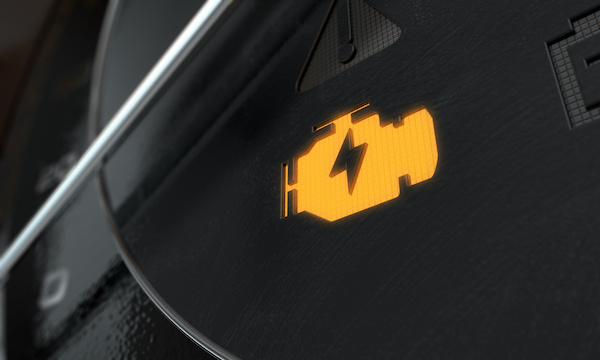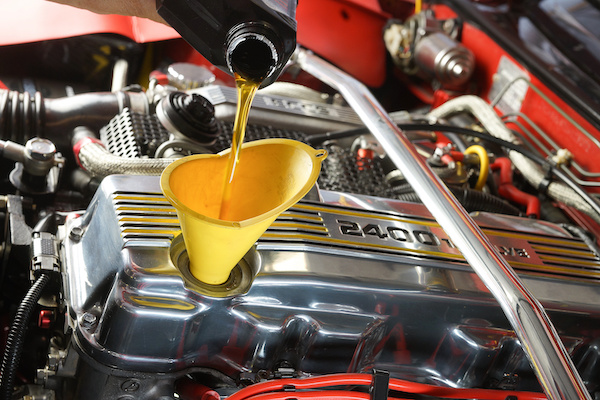Posted on 12/23/2021
.jpeg)
Generally speaking, brake pads should be replaced about every 50,000 miles. Whether a driver would need them replaced sooner or later than that, however, depends on the individual person's driving habits, driving environment, and the material or composition of the brake pads themselves. Fortunately, there's no need to be an expert on these various conditions in order to stay on top of your car's upkeep! Knowing what signs to look out for, as well as how to extend the lifespan of your brake pads, will effectively suffice in promoting the maintenance and safety of your vehicle and any driver behind its wheel. Signs Your Brake Pads Need To Be Replaced Hearing squeaking or grinding sounds when hitting the brakes. This is usually the first sign brake pads have neared the end of their functional lifespan; it's evidence the pads have worn down and are no longer performing optimally. If you hear squeaking, squealing, or grinding sounds when braking, be sure ... read more
Posted on 11/22/2021

The check engine light is one of the most feared situations for most drivers. This dreaded yellow light is a telltale sign that something is wrong with your engine, and it can mean various things. Thankfully, the experts at Kwik Kar Auto Repair have the tools and skills to diagnose your check engine light. What Is Different About a Flashing Check Engine Light? In some instances, the check engine light will flash instead of stay steady. A flashing check engine light means there is a severe engine issue at hand, and you should stop driving. It is considered an emergency, and if you continue to operate your vehicle, the damages can escalate fast. If you notice the yellow light blinking on your dashboard, you should immediately pull over and call for an emergency tow. It is the safest bet if you want to minimize the damage done to your vehicle. As soon as your vehicle gets to Kwik Kar Auto Repair, our technicians will conduct a thorough a ... read more
Posted on 10/28/2021

Usually, when your nose detects an odd smell in your car, it means there's something wrong. Some scents may be so alarming that they require immediate action, while others can be minor problems. Nevertheless, it would be best if you never overlooked any weird odor that your car may give off. Instead, we highly advise that you get professional help to diagnose your auto problem. Below is a quick guide on the most common car smells and what kind of automotive problem it relates to. Sweetness/Maple Syrup - If your automobile smells sugary like maple syrup, then we have unfortunate news for you. A sweet-smelling scent signals a coolant leak within your cooling system. Depending on the severity of the leak, your car could overheat. Please rush to a mechanic immediately. Gasoline - The smell of gas usually means there's a fuel leak. Most of the time, it's related to your fuel injector line or the fuel tank. A professional tech can inspect and trace the leak to its exact locatio ... read more
Posted on 9/28/2021

If you own a vehicle, you should know the most vital service your vehicle needs is oil changes. It is the most frequent service that your car will receive in its lifetime and is the most needed in terms of the performance and longevity of your vehicle. It is typically required between every 3-6 months but can vary depending on your car and the type of oil it takes. To understand what type of oil is best for your vehicle, you should refer to the vehicle's owner's manual as it is the best source for understanding specific procedures. It will also define the recommended interval for oil changes. Your vehicle's engine oil has the important function of keeping engine parts lubricated and stable. It does manage to wear down quicker than the other fluids inside of your car, which is why you should always get in the habit of getting them done on time. You should never put off an oil change for whatever reason! Here's why: A skipped oil change can lead to serious engin ... read more
Posted on 8/30/2021
.jpeg)
If there's no oil in your vehicle, it won't run for long. You need always to make sure you have the right amount, the right type, at the right time. Every driver should know how to examine their oil to achieve peak engine performance and longevity. Don't know how? Kwik Kar Auto Repair has your back. Here is a step-by-step overview of how to inspect your engine oil. Step 1 - Park your car on a flat surface to ensure you get an accurate reading. Then turn off the engine and wait 10 to 15 minutes for your vehicle to cool down. Step 2 - Next, you can proceed to pop the hood open and locate the oil dipstick. It usually has a red, orange, or yellow plastic tab on it. However, you can always refer to your owner's manual for additional help. Step 3 - Remove the dipstick. It's not always necessary to wear gloves, but you have the option to do so to keep your hands clean. Step 4 - Wipe the dipstick (from the handle to the tip) with a clean rag or paper towel ... read more